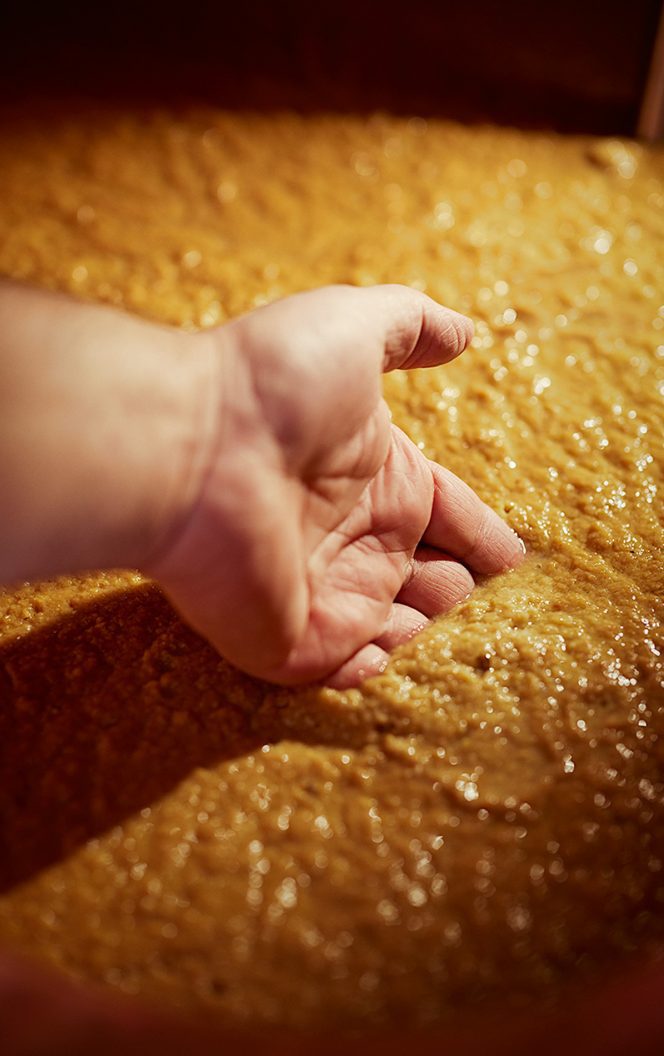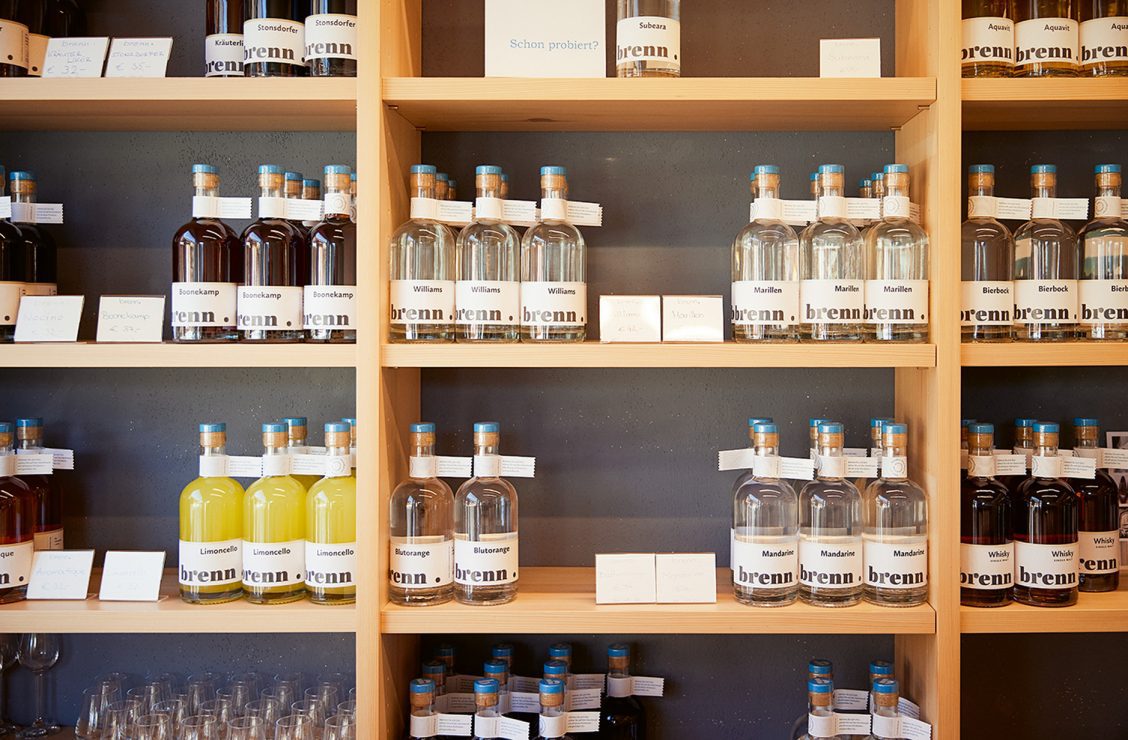For our Weiss restaurant in the city centre of Bregenz, our original plan was to source whisky and rum from Bartholomäus Fink, as he’s a one-of-a-kind character within the local gastro scene. But after visiting his shop, which is also his distillery, things turned out a bit differently. Soon we find ourselves discussing schnapps instead. Small wonder: Bartholomäus is a very passionate fellow and his enthusiasm for his work is contagious. Just driving to Bizau and spending some time looking over Bartholomäus’ shoulder is an experience in itself. Within moments he will offer you a schnapps and begin philosophising about what’s currently in the room: e.g. his distillery equipment and what’s currently bubbling inside. Honesty is Bartholomäus’s number one priority.
He doesn’t waste time romanticising his homeland for marketing purposes; there are no empty words here, just transparency, not unlike the clear schnapps from his distillery, which stands in the middle of the room, working, while Bartholomäus himself is busy doing everything else. Every now and then he casts an appraising glance at “his little darling”. The entire operation has been set up at the site of an erstwhile bakery on the outskirts of the village of Bizau. He tells us that in the past, around 300 loaves of bread were baked here every day. For comparison’s sake, on average around thirty bottles of his fine schnapps are now produced here on a daily basis. Soon, the conversation turns to mashing, experimenting, distilling, reflecting, bottling, philosophising, selling and tasting: all under one roof.








